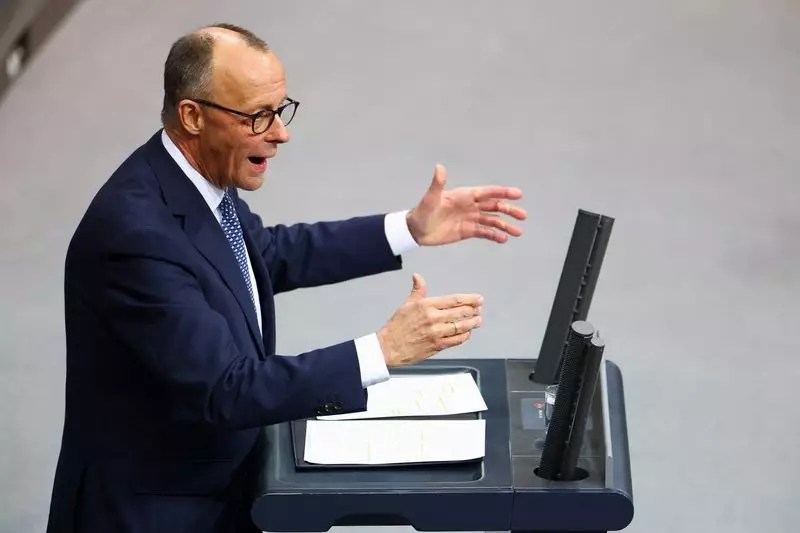The political atmosphere in Germany is undergoing a significant transformation as the nation gears up for a snap election scheduled for February 23. With the collapse of Chancellor Olaf Scholz’s coalition government, the country finds itself grappling with critical economic stagnation, rising political tensions, and a marked uptick in support for far-right parties. As major political parties prepare to unveil their election manifestos, the stakes have never been higher, both for traditional power players and for the rising tide of nationalism that threatens the established political order.
Economic Troubles: A Call for Radical Change
Germany’s economy is at a crossroads, poised to contract for a second consecutive year. Industrial giants, including automotive behemoth Volkswagen, are facing increased competition from global players, raising concerns about the long-term viability of key sectors. In response, political parties are formulating plans aimed at revitalizing economic growth while presenting contrasting visions for the future.
The Christian Democratic Union (CDU), led by frontrunner Friedrich Merz, advocates for significant tax cuts aimed at both individuals and corporations. His approach is rooted in the belief that reducing the financial burden on businesses will facilitate investment and innovation. Yet, Merz’s commitment to adhere to the “debt brake,” a constitutional principle that limits government borrowing, poses questions about the potential effectiveness of his proposed measures. Critics argue that such constraints inhibit necessary fiscal stimuli that could urgently bolster the flailing economy.
Conversely, Scholz’s Social Democrats (SPD) have taken a more aggressive stance on fiscal policy, advocating for necessary reforms to the debt brake itself. They propose a substantial off-budget fund of 100 billion euros, aimed at modernizing the nation’s infrastructure and incentivizing private investment. As they seek to reclaim lost ground in the political arena, the SPD’s focus on bolstering domestic economic resilience is a sign of their commitment to a more proactive governance model.
Germany’s role in international politics is front and center in current electoral discussions, particularly concerning the ongoing war in Ukraine. Under Scholz’s stewardship, Germany has significantly increased defense spending and emerged as a principal military supporter of Ukraine, effectively positioning itself as a leading ally to Western partners.
However, Merz and the CDU propose an escalated military support strategy that includes supplying Ukraine with advanced missiles, a move that many believe could provoke an adverse reaction from Russia. This divergence in foreign policy highlights not only the varying strategic perspectives of the leading political factions but also the broader implications for Germany’s long-term security commitments and relations with Moscow.
On the other hand, the far-right Alternative for Germany (AfD) has capitalized on rising anti-immigrant sentiments, calling for a complete cessation of military aid to Ukraine and advocating for improved ties with Russia. While the AfD’s position taps into growing nationalist fervor among certain voter demographics, it raises concerns regarding the potential isolation of Germany on the world stage.
Migration remains one of the most contentious issues in contemporary German politics. The country, once known for its welcoming approach to refugees during the 2015 crisis, has adopted a more stringent posture as concerns about integration and national security have intensified.
Merz has positioned himself as a tough proponent of immigration controls, advocating for rigorous border enforcement and the processing of asylum claims in third-party countries. This shift reflects a broader trend within German society where public sentiment has increasingly turned against unchecked migration. The SPD, while still emphasizing the importance of humanitarian considerations, has also recognized the need to develop policies that align with public opinion on this pressing issue.
As Germany approaches the forthcoming election, the landscape is layered with competing economic visions, diverging approaches to foreign policy, and intense debates surrounding migration. The outcome could substantially alter the trajectory of the nation, influencing not only domestic policies but also Germany’s role within Europe and the global community. With the rise of the far-right and discontent among traditional political parties, the implications of these elections will be felt long after the votes are cast, further challenging the established political norms of Europe’s largest economy.


Leave a Reply